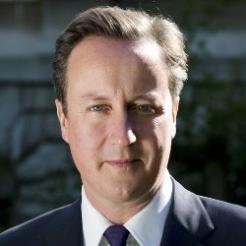The Prime Minister announced yesterday that the government has agreed a deal with the National Housing Federation that will see the sector deliver the government’s right-to-buy policy voluntarily.
The Conservatives had previously said they would legislate to force housing associations to offer the right-to-buy, and charities had objected that this would breach charity law, as housing associations are mostly exempt charities.
David Cameron said yesterday: “Some people said this would be impossible and that housing associations would never stand for it. Today we have secured a deal with housing associations to give their tenants the right-to-buy their home. That will mean the first tenants can start to buy their homes from next year.
Greg Clark, Communities Secretary, said: “Today’s historic agreement with housing associations and the National Housing Federation will extend that offer even more widely, while at the same time delivering thousands of new affordable homes across the country.”
David Orr, chief executive of the National Housing Federation, said: “This reflects our commitment to work in partnership with the government to deliver the commitment to extend right-to-buy, increase home ownership and boost the supply of desperately-needed homes across the country.
“This is a great offer for housing association tenants. It is also a great offer for the country, as our proposal means homes sold will be replaced, delivering an overall increase in housing supply.
“This is an ambitious sector that last year built more than one in three of the country’s homes, matching each pound of taxpayers’ money with £6 of its own. We will build more.”
The National Housing Federation asked its members to vote on a voluntary agreement that will see its members deliver the government’s right to buy scheme without the need for legislation.
Under this agreement housing association tenants would have the right to purchase a home at right to buy level discounts with the presumption that housing associations would sell the tenant the property in which they live.
The government would compensate the housing association for the discount offered to the tenant and housing associations would retain the sales receipt to enable them to reinvest in the delivery of new homes.
Housing associations would use sales proceeds to deliver new supply and would have flexibility to replace rented homes with other tenures such as shared ownership.
Reflecting the existing right-to-buy, housing associations would have discretion not to sell a particular property in some limited circumstances, for example where a property is in a very rural area and could not be replaced, or where it is adapted for special needs tenants.
However, even in these exceptional cases, housing associations would offer tenants the opportunity to use their discount to buy an alternative home from either their own or another association’s stock.








